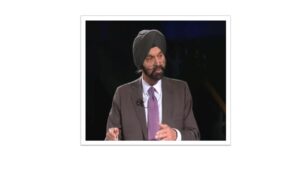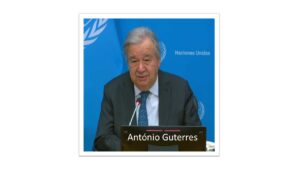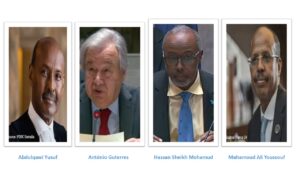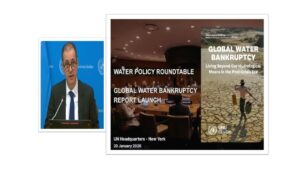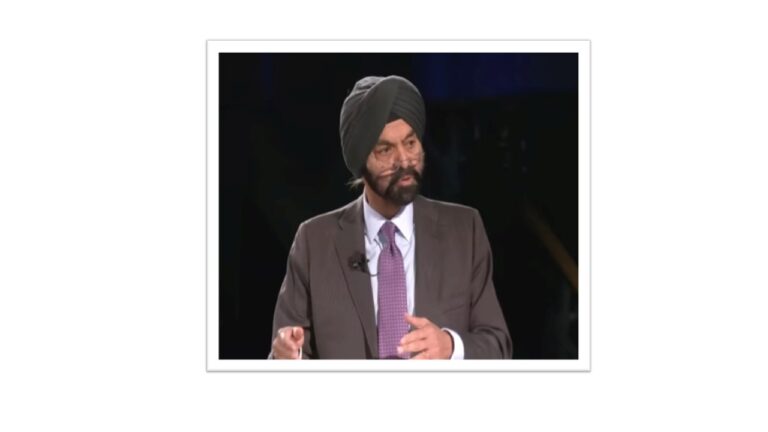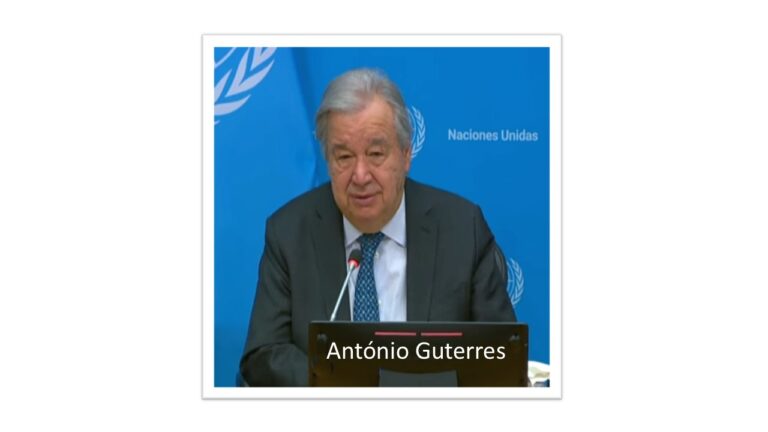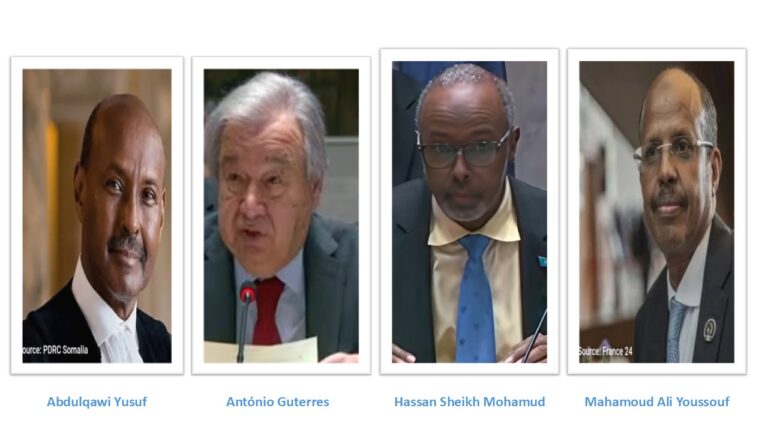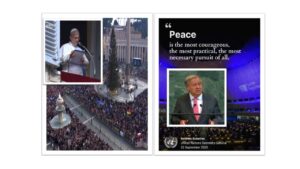
The UN Secretary General – António Guterres, accompanied by Deputy Secretary – Amina J. Mohammed, Under Secretary General for economic and social affairs – Li Jinhua and Assistant Secretary General for Policy Coordination – Bjørg Sandkjær launch the 2025 Sustainable Development Goals Report that marks a collective journey towards the 2030 agenda.
The 2025 SDG report, which is the 10th annual progress report, shows the sustainable development goals are still within reach; provided we act collectively with urgency, unity and unwavering to resolve. This report particularly shows 35% of the SDG targets’ achievement which correlates to the global development’ emergency where 800 million people still live in extreme poverty with intensifying climate impact and in relentless depth service draining the resources that countries need to invest in their people. The deep linkages between underdevelopment and conflicts need to be recognized, including restoring peace and requesting the ceasefire and immediate release of all hostages and unimpeded humanitarian access as a first step to achieve the solution. The snapshots of where we stand today are as follows:
- Since 2015, millions more people have gained access to electricity, clean cooking and the internet.
- Social protection now reaches over half the world’s population, which marked a significant increase from a decade ago.
- Access to education has continued to increase with more girls staying in school.
- Child marriage is declining.
- Renewable energy capacity is growing with developing countries leading the way.
- Women’s representation is rising across governments, business and societies.
- The yield results show gains in investments in development and inclusion.
For a better comprehension of the report, the Under Secretary – Li adds that the 2025 report serves as both a campus and a caller to action providing critical evidence needed to guide the discussion at the HLPF and beyond. Data reveals in the report shows positive progress alongside turbulent challenges over the past decade. The breakdown achievements and harsh realities are as follows:
- The new HIV infections decreased by nearly 40% since 2010.
- Malaria prevention efforts have saved more than 12 million lives since 2000.
- 45 countries have eliminated at least one neglected tropical disease.
- An additional 110 million children have enrolled in school since 2015.
- Access to electricity has reached 92% of the global population with 45 countries achieving universal electricity access in the past decade.
- Internet use has also increased by 70%, reaching 68% today.
- Lives transformed: more children in school, more families protected, and more communities empowered.
- Conflicts are escalating.
- Temperatures are breaking records.
- The debt burdens are rising while developing countries face an annual four trillion US dollars SDG financing gap.
- The world is not moving fast enough to achieve the SDGs amid the overlapping crises.
- Over 800 million people remained trapped in extreme poverty with lack of access to safe water, sanitation and hygiene.
- Women continue to devote two and a half time as many hours to unpaid domestic and care worked as men.
- Climate change is accelerating with 2024 marking the hottest year on record at the 1.55 Celsius grade above the pre-industrial levels.
- Lower end and middle-income countries faced a record high depth servicing cost of 1.4 trillion US Dollars in 2023.
To conclude, despite the monumental challenges, the path forward is clear. The report shows the progress is still possible if we scaled up solutions following the ways to achieve the challenges as launched today by the Secretary General:
- Transformational pathways in food, energy, digital access, education, jobs and climate.
- Progress in one area can multiply progress across all of them.
- It needs a faster move which needs to move together focusing on quality education, creating decent jobs and economic opportunities that leave no one behind.
- Closing the digital divide and ensuring that technologies like artificial intelligence are used responsibly and inclusively, without unlocking financing at scale.
The UN Secretary General – António Guterres and Under Secretary General for economic and social affairs – Li Jinhua call chief of states and all stake holders for the recommitment achieved in recent Sevilla Conference (FFD4) and UNOC3 that reflected a commitment to get the engine of development reviving again through reform of international financial architecture. Re-election on that relief to tripling the lending capacity of multilateral development banks so countries can better access capital at scale and at reasonable cost. The opportunities to drive priorities forward are available from the high-level political forum to summit of the world social. It is requested to maximize all available opportunities for real commitments and deliveries.
Related Links:
Launch of the Sustainable Development Goals Report 2025 – Press Briefing | United Nations
ECOSOC President Urges Global Solidarity to Rescue SDGs by 2030 – Press Briefing | United Nations
